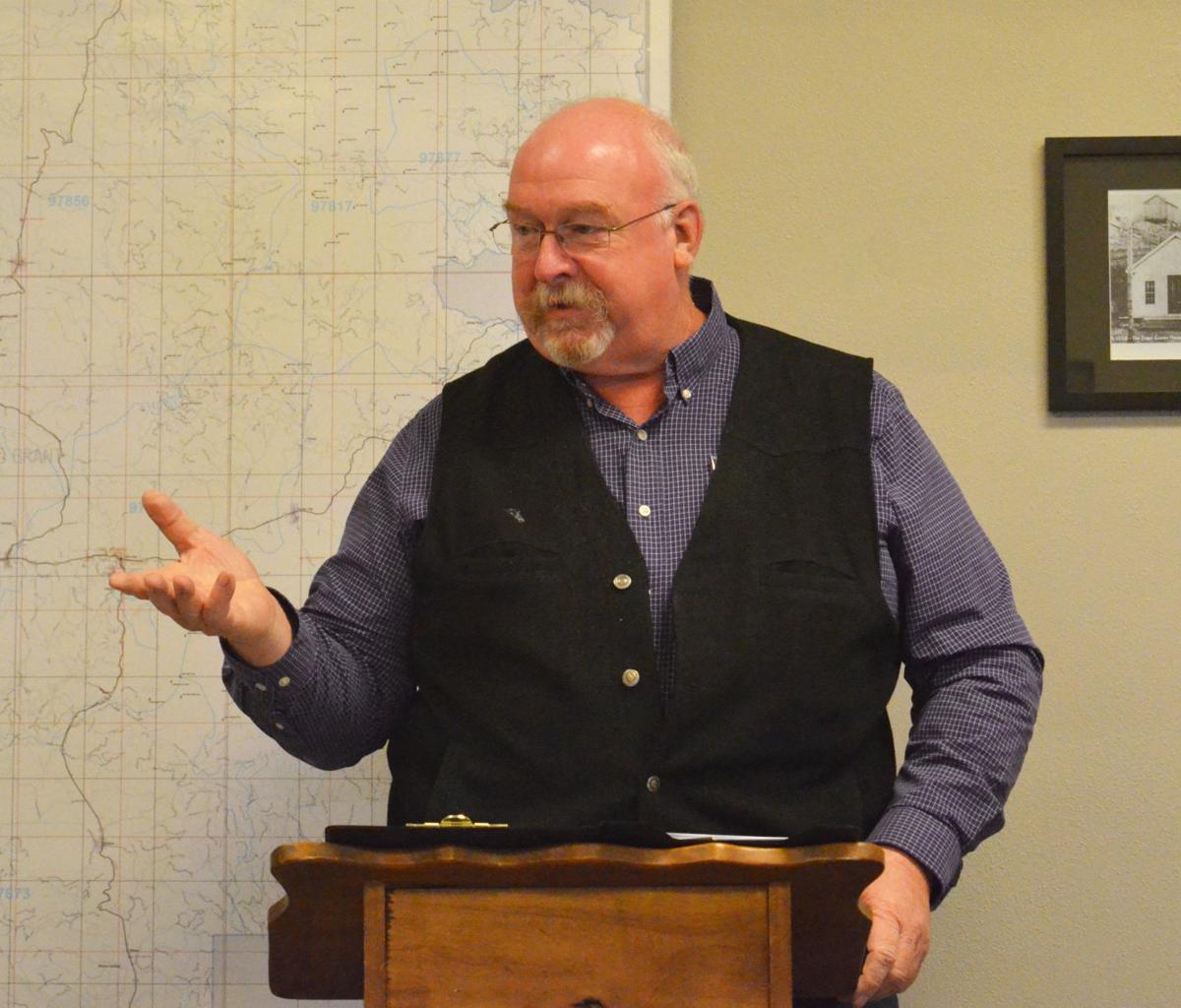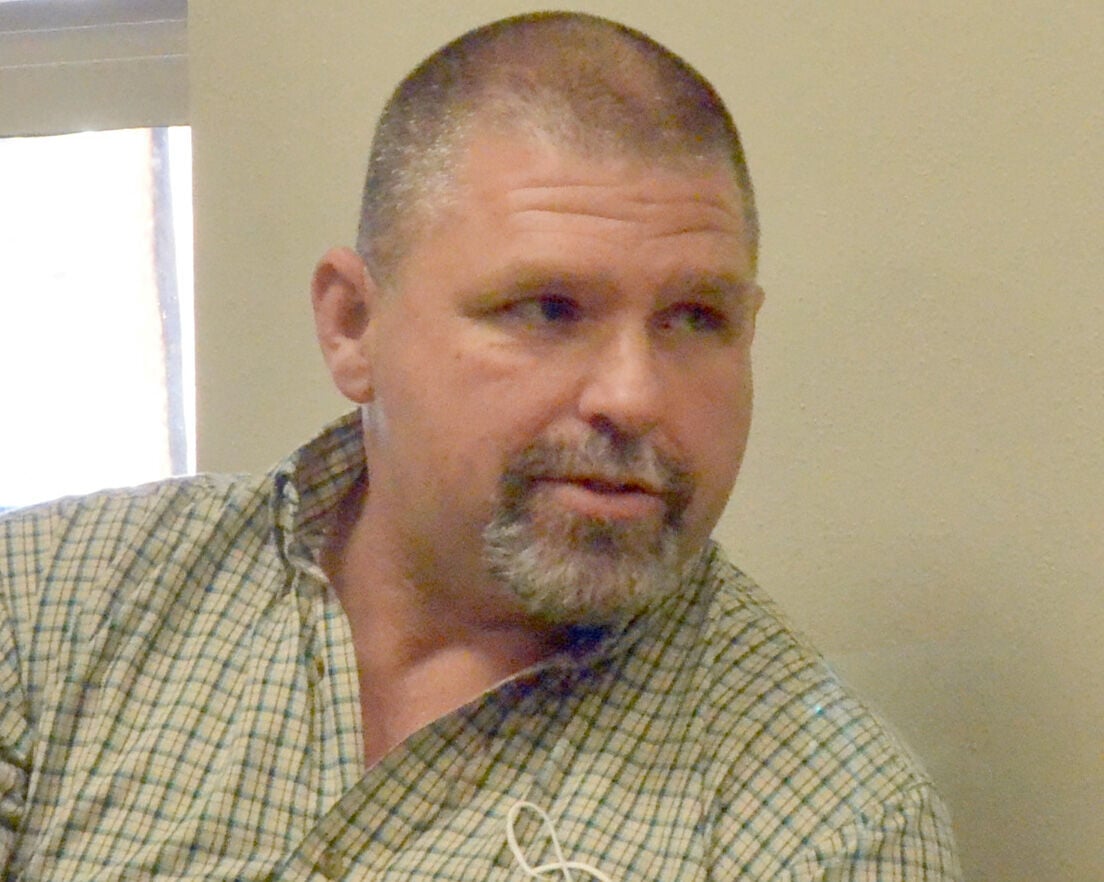As the legislative session wrapped up, state Sen. Lynn Findley, R-Vale, and Rep. Mark Owens, R-Crane, held a virtual town hall and had a lot to discuss.
One of the items at the top of the list for both lawmakers was the drought. 
Findley said one of the most significant “side effects” of drought are the wildfires. He touted wil which Gov. Kate Brown dubbed as her “going home bill.” He said it was one that she wanted passed before the end of the session.
After several amendments and work in committee, he said the governor signed the legislation on June 26. He said the bill retools how wildfires are fought in the state.
One component, he said, is that it gives the Oregon State Fire Marshal proper additional authority to go in and work with districts and tap into assets at both federal and state levels.
He said two years ago fires in and around Sherman, Wasco and Gillam counties could not get support because it was considered a “no man’s land,” a territory where no one is responsible for responding to wildfires. As a result, it burned nearly 100,000 acres.
After the governor signed the new legislation, agencies started enacting it immediately because Brown had full support for the bill.
Over the last seven days, Findley said, many fires in his district have been provided additional resources because of that bill. He said they put aviation, air tankers and large helicopters on those fires almost immediately. He said it kept similar fires at less than 1,000 acres, where they likely would have burned 50,000 acres in the past.
The bill did not come cheap, he said. Findley said the price tag was $150 million. He said the legislation improves fire detection and suppression resources and upgraded air tankers to modern aircraft — from the old 75-year-old turbine to a jet-powered aircraft.
Findley noted that there are some issues that they ironed out at the last minute. One, he said, was agreeing on which properties would be in a wildland-urban interface. He said houses or structures that intermingle with wildland vegetation would be tagged as in the wildland-urban interface. To lower wildfire hazards, there are defensible space requirements. He said they were able to take some of the most egregious conditions out of the final bill.
For instance, he said a ranch in Diamond in the middle of nowhere would have been considered in the interface and would have had to meet a host of requirements.
“Some of that stuff did not make any sense,” he said. “We were able to inject some common sense into it.”
He said he was not happy with land use provisions in the bill. According to Findley, the bill would place restrictions on the size and type of roads. For example, the legislation would likely require a 20-foot all-weather road, while anything over 1,000 feet would require turnouts.
Additionally, he said there would be building codes in high and extreme fire danger areas, and electric companies would be required to protect their grids.
The most significant portion, he said, is the reduction of wildfire risk. Findley noted that homeowners in the wildland-urban interface areas with ladder fuels and fuel up into the communities would be required to increase resiliency efforts. He said there is no funding to assist them, and he plans to pick up the bill in the following legislative session to address those “holes in the bill.”
Findley said there is also some additional funding for the rangeland fire districts in north Central Oregon.
“This is the tie that puts fire suppression tools, all the tools in the toolbox available throughout the state,” he said, “which is a pretty good thing.”
Findley said, while he voted yes, it took a long time to get to yes.
“This is not the end point for this bill,” he said. “We have a lot of work left to do on this bill. We can only make it better.”
 Owens’ report from the session:
Owens’ report from the session:
Owens said most of the bills in the Education Committee that he introduced were around educational choice and did not make it out.
He said three funding bills include $1.2 million for the John Day Wastewater Treatment Plant, $2 million for an aquatic center in John Day another $1 million for the planned Kam Wah Chung Interpretive Center, as well as additional funding for the Grant County Public Safety Network that will go to communications.
Owens said he opposed a bill that dropped the essential skills requirement allowing high school students to receive their diplomas.
“I do not believe you can get rid of essential skills without replacing it,” he said.
He said he could support a different type of diploma, but the Legislature threw out the essential skills requirement until 2024.
Move Oregon’s Border
The lawmakers were asked about a grassroots effort looking at flipping Eastern Oregon’s counties to Idaho.
Voters in Grant County were among five that told their commissioners to hold meetings to discuss the county joining Idaho as part of the “Move Oregon’s Border” movement.
“Citizens for Greater Idaho” is a political action committee that advocates adjusting the current state boundaries of Idaho, California and Oregon, thereby increasing Idaho’s size to encompass several rural counties in California and Oregon.
Owens said he wants to figure out how to make Oregon more conservative to stay in Oregon.
“We’re struggling a little bit with that,” he said. “We’re getting a little bit more liberal than we are conservative, and that’s making people frustrated.”
He said the odds of getting the border moved are slim. Owens said he knows people say that they will not know until they find out.
“I’ll educate myself, and learn more about it and move forward,” he said, “but I still want to spend the vast majority of my effort trying to make Oregon a place that we want to stay.”
Findley said he mentioned it four times on the Senate floor throughout the session.
“I said if you’re not going to leave them alone and let them live like rural Oregonians, then please support secession to the state of Idaho, because the frustration level is just too high,” he said.
Findley said moving the state borders would be a “heavy lift,” however, and would require the approval of the Oregon and Idaho legislatures, as well as Congress.
“It’s a grassroots effort,” he said. “It’s not a top-down effort. It’s not something that we in the state legislature can and should do. It has to come from the ground up.”
Posted at the Blue Mountain EAGLE by Steven Mitchell on 7-13-21
Date: 2021-07-14 07:28